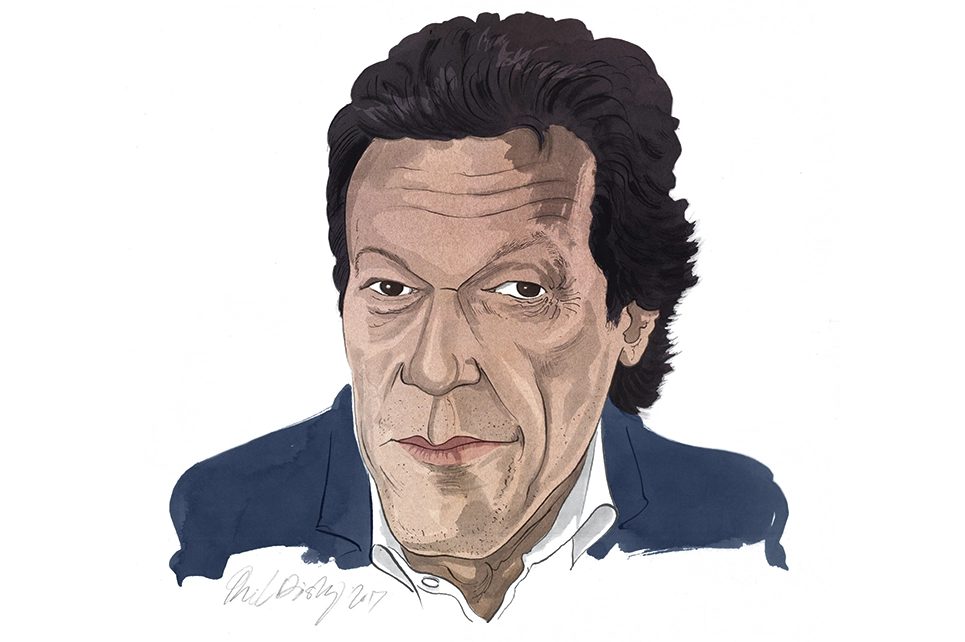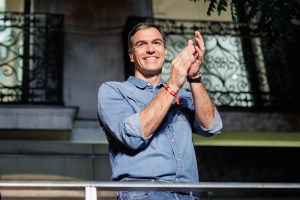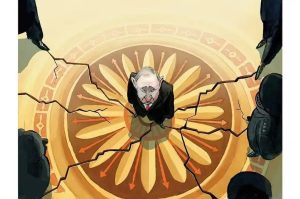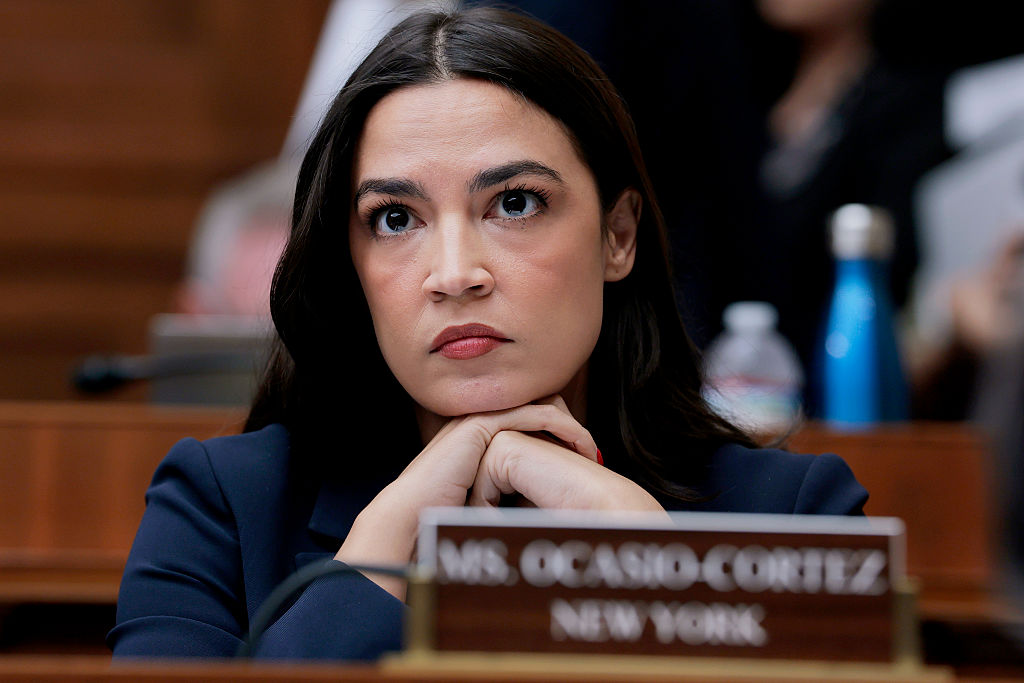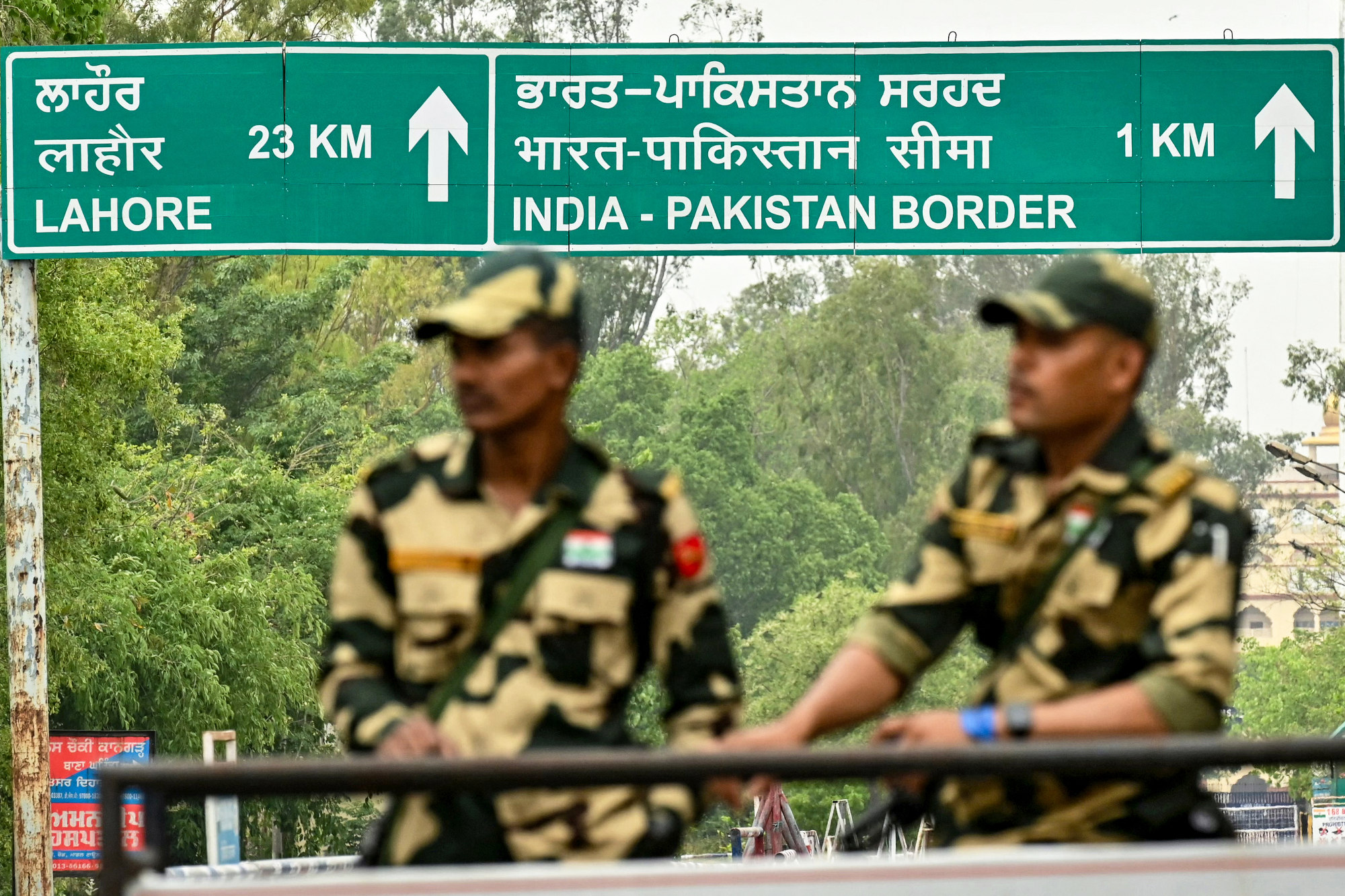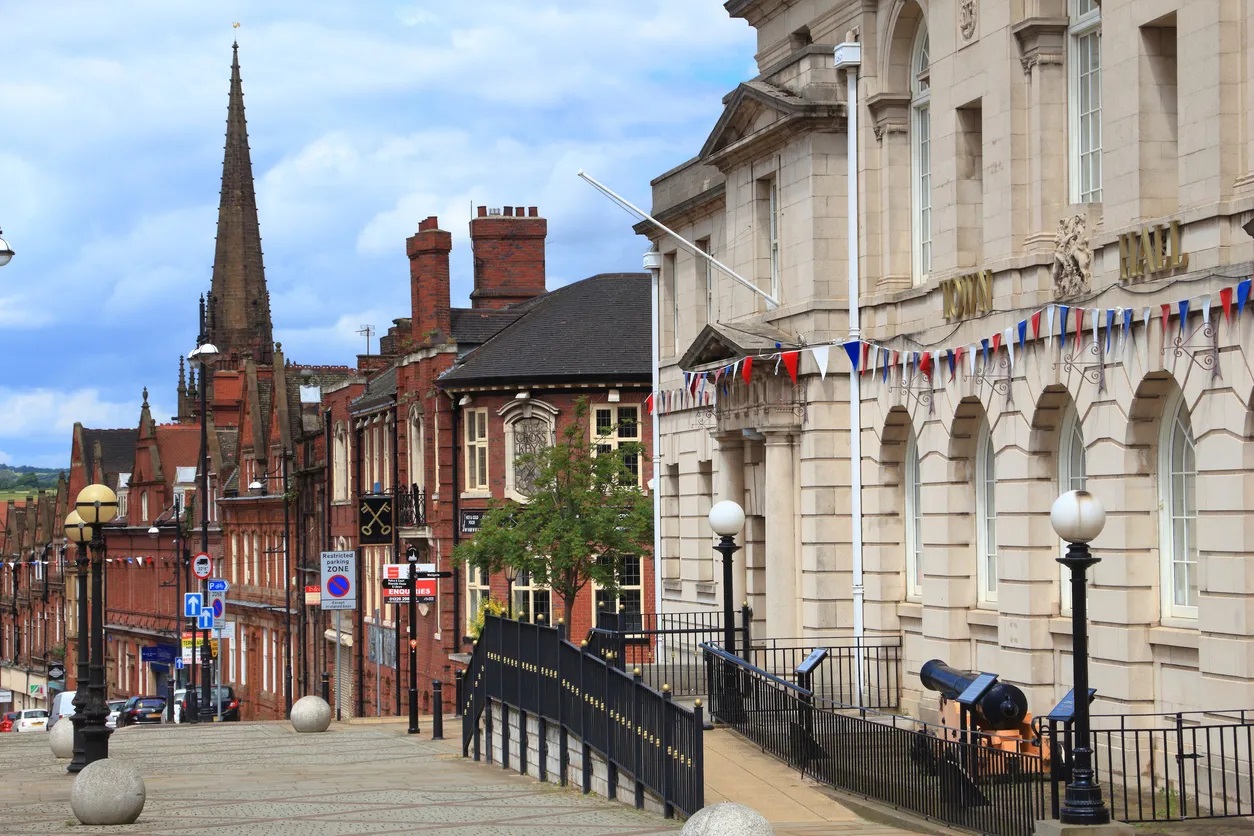Pakistan is familiar with political unrest. No prime minister in its independent history has completed a full term in power; some of its most popular leaders have been assassinated or executed. Even so, the events of last month were extraordinary.
On May 9, in response to the arrest of former prime minister Imran Khan on corruption charges, thousands of protesters stormed buildings belonging to the country’s all-powerful military and set the army headquarters alight. More than forty people died in the clashes with the army and police, and approximately 10,000 officials and supporters of Khan’s party, Pakistan Movement for Justice (PTI), were arrested. The country was on the edge of anarchy.
“It’s a reign of terror right now. It’s something unprecedented in our history that is happening,” says Khan, who speaks to me over Zoom from his home in Lahore’s Zaman Park. “There has been an entire dismantling of the democratic structure in Pakistan. It’s not just that many of my supporters are being shoved in jail, but the media is also totally muzzled.”
‘There is no question of backing down, even if I have to sacrifice my life’
Our connection is somewhat patchy thanks to a cyclone barreling down on Pakistan’s western coast but Khan, dressed in navy blue salwar kameez and clutching a string of Islamic prayer beads known as subhah, remains calm and assertive throughout.
Until last month’s chaos, seventy-year-old Khan, who was deposed as prime minister in April last year, was predicted to triumph in October’s general election. Now he has entered a ruthless new phase in his struggle with Pakistan’s establishment — the military and intelligence services — who fear that, if re-elected, he will attempt to erode their power and could try to jail his own enemies.
Relations between Khan and the establishment were once rosy. As a former cricket captain who led Pakistan’s team to their sole World Cup victory in 1992, he was a national hero. Not long afterwards, he had a spiritual awakening. The sporting idol once infamous for his playboy antics (one visitor described the “bedroom of great expectations” in his opulent Knightsbridge home) became a devout Muslim. In 1996 he founded PTI and began campaigning under the slogan “justice, humanity and self-reliance.”
Despite Khan’s fame and popularity, PTI spent eighteen years floundering in the polls and only won a single seat — his own — in the 2002 election. It wasn’t until 2018 that it finally climbed to the summit of Pakistani politics, thanks in large part to surging public frustration with the two ruling families who have dominated Pakistan’s politics since its independence in 1947: the Bhuttos and the Sharifs.
Pakistan’s establishment threw their weight behind Khan and helped to engineer a narrow victory in a PTI-led coalition. But relations quickly soured and there was a public falling out in late 2021 when he opposed the military’s proposed appointment of a new intelligence services chief. He was finally ousted in a no-confidence vote, which saw Shehbaz Sharif made interim prime minister.
“When I came into politics twenty-seven years ago, I knew I would be standing up against mafias,” says Khan. “I will go all the way, whatever it takes, you know. There is no question of backing down. I will be staying, even if I am the last person left. I will stand up against this fascism because they are trying to destroy our freedom. I cannot accept this — even if I have to sacrifice my life.”
He might not be exaggerating. In November, he narrowly survived an assassination attempt when he was shot four times in the legs while on the campaign trail in Wazirabad. He believes Sharif was behind the attack, along with the interior minister Rana Sanaullah and a senior member of the intelligence services. He also claims he has uncovered two further plots.
“I have had the full brunt of the country’s establishment against me. They have done everything from legal threats to the first assassination attempt, then assassination attempt two. I do feel very lucky to be alive,” Khan says. “There was a third one too, but I just got wind of it in time. The establishment has completely dismantled Pakistan’s constitution to try to stop me from returning to power.”
More than 160 criminal charges have been filed against Khan to get him banned from politics, including allegations of corruption, terrorism and blasphemy. Courts repeatedly bailed him — citing a lack of evidence or unlawful filing of cases — before the authorities finally appeared to lose patience and had him beaten and arrested on May 9.
The main allegation is that, while in power, Khan and his third wife, the Sufi Muslim mystic Bushra Bibi, had received land worth millions of dollars as a bribe from Malik Riaz, a real-estate tycoon and one of Pakistan’s richest men, after the couple had used state funds to pay off court fines levied on Riaz. Khan has denied the charges in full and says that the case is politically motivated.
Why doesn’t Khan, reportedly a multi-millionaire, quit politics, save himself and go into exile, like many Pakistani leaders before him? After all, despite his anti-Western rhetoric, he speaks warmly of his time in Britain where between 1972 and 1975 he studied philosophy, politics and economics at Keble College, Oxford. His two sons, twenty-six-year-old Sulaiman Isa and twenty-four-year-old Kasim, from his first marriage to Jemima Goldsmith, are also said to still be living in the UK.
“I started my whole movement twenty-seven years ago because I was inspired by my time in England as a teenager, where I saw rule of law first-hand and it struck me — I realized this is why countries are prosperous,” he says. “But in Pakistan we have two ruling parties who had traditionally pointed out each other’s corruption and then came together to form a government. People are sick of their corruption and instead, they trust me.”
Khan’s critics argue that he has become power crazy and that his vendetta against the establishment is a personal one, not for the benefit of Pakistan. But he is adamant that only he can rid the country of corruption and lift its citizenry out of the worst economic crisis in its history. Inflation is at an all-time high of 38 percent and last-minute negotiations between Sharif and the International Monetary Fund for a default-avoiding bailout remain inconclusive.
Khan denies he orchestrated last month’s violence. He points to the fact that there were no violent protests either after the assassination attempt in Wazirabad or a prior police attempt to storm his Lahore residence — and to the fact he was incommunicado in police custody when May’s protests erupted.
The authorities’ response was, Khan says, the “most draconian crackdown in Pakistan’s history.” Of the 10,000 PTI members and supporters who have been jailed, many have since been tortured and blackmailed. “Workers have been packed into overcrowded jails and are being held without food or access to hygiene,” he claims. “Custodial torture is being carried out against my supporters. Two of our most prominent officials were taken out of their cells to a special room and tortured. There are awful stories emerging, women have been mistreated and really humiliated.”
Khan was released on May 10 after Pakistan’s Supreme Court ruled that there were no legal grounds for his detention, but he believes he is on borrowed time. Last week, he obtained bail in twenty-eight cases in two days and Pakistan’s judiciary is coming under increasing pressure to jail him.
“Well, right now it is a question of weathering the storm. Everyone who is not in jail is in hiding or exile,” he says. “I think the massive crackdown going on is to prepare the ground to re-arrest me. I expect to be arrested over the next, maybe, ten days or two weeks.”
Khan still enjoys phenomenal public support. Polling by Republic Policy, an Islamabad-based think tank, during May 10 to 15 found that he has a 70 percent approval rating; Mr. Sharif trails on 18 percent. Yet the scale of last month’s crackdown means that it is unlikely that Pakistan’s public will come out en masse to support him again.
He acknowledges that his party lies in tatters. He is unable to communicate with his closest aides. His former defense minister, finance minister, human rights minister and information minister have all quit the party. Dozens more federal and state officials have resigned. Two former PTI officials, Murad Raas and Hashim Dogar, have set up a new party called the Democrats and the PTI’s former secretary general, Jahangir Tareen, has founded the Pakistan Stability Party. Both have establishment support.
It seems logistically impossible that the PTI could stand in the fall elections, although Khan plans on doing so, even alone, in the unlikely event he remains a free man. Either way, he remains steadfast that he will not quit politics or Pakistan. He admits the previous year has been “the toughest in my life” but argues it is a case of biding his time; that he can’t be silenced forever.
“Some of my first life lessons were learnt on the cricket pitch,” he says. “You learn how to take pressure, that’s number one, and the ups and downs, the dynamics of losing. You learn how to pick yourself up again.”
This article was originally published in The Spectator’s UK magazine. Subscribe to the World edition here.



